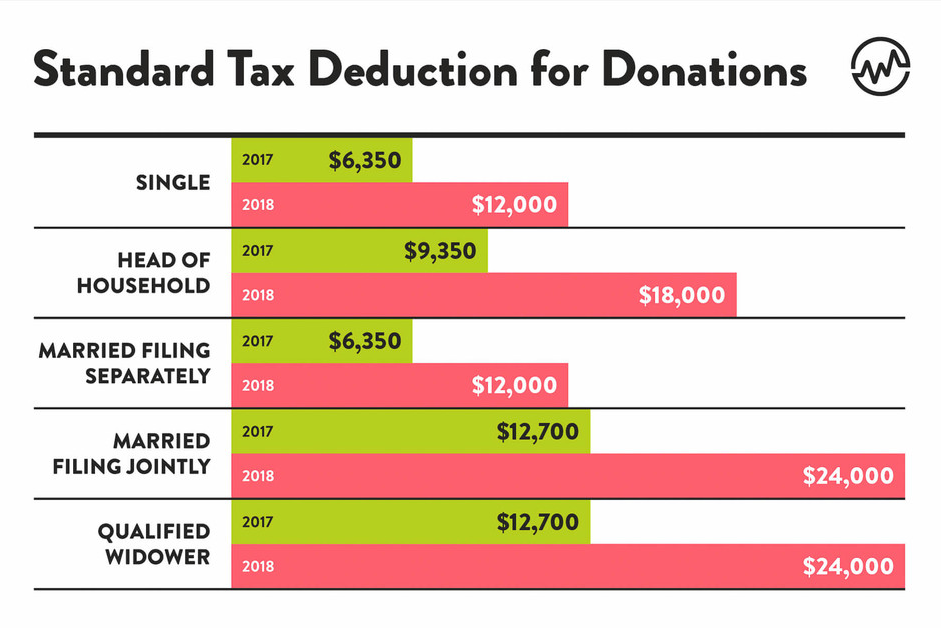Table of Contents
So, you’re thinking about making a charitable donation and wondering if it’s really worth it from a tax perspective. Let’s dive into the nitty-gritty of how giving away your cash can impact your wallet and why the rich might not be giving just for the tax break.
The Tax Break vs. Keeping the Cash
Let’s break this down with a simple example. Imagine you’ve got $1,000 in your pocket. You decide to donate it to charity, and because you’re in the 20% tax bracket, the IRS gives you a $200 tax refund. So, you end up with $200 back from the donation, but you’ve given away $1,000, leaving you with $200 in total.

Now, let’s say you keep that $1,000 and don’t donate it. Instead, you owe $200 in taxes. After paying the IRS, you still have $800 left. So, in the first scenario, you’re left with $200, while in the second scenario, you’re left with $800. Would you rather have $200 or $800 in your pocket? It’s clear—keeping the money gives you more bang for your buck.
But if your goal is to help others, the tax savings are a nice bonus rather than the main reason for your generosity. If you’re giving to charity solely for the tax break, you might be better off keeping your cash.
How Charitable Donations Really Work
Here’s a quick breakdown: If you’re making a million bucks a year, the last portion of your income is taxed at 37%. So, if you donate $10,000 to charity, the IRS treats you as if you only made $990,000. This means you save $3,700 in taxes, and the donation effectively costs you $6,300, the same as if you had kept the money. In other words, the donation still costs you more than just pocketing the cash.
If you had to pay income tax on that donation amount, it would be even more expensive. You’d be out $10,000 plus additional tax, making charitable giving less appealing. Most people would still donate, but likely less than they do now.

Do the Wealthy Give Just for the Tax Break?
Many think the wealthy only donate for the tax break, but that’s not entirely true. According to the 2018 U.S. Trust Study of High Net Worth Philanthropy, only 17% of wealthy donors said tax benefits are their main motivation for giving. Most, about 93%, donate because they genuinely believe their contribution can make a difference. Tax benefits are a nice perk but not the driving force behind their generosity.
Are Wealthy Donors Planning to Give More?
Despite concerns that changes in tax laws might reduce charitable giving, the news isn’t all bad. Only 10% of donors said they plan to give less, and a whopping 74% of high-income donors (those making more than $150,000 annually) plan to increase their contributions. Charitable giving often mirrors stock market performance, so if the market is doing well, donations usually rise.

Volunteering: More Than Just Money
It’s not all about cash. Wealthier individuals are also more likely to volunteer their time and talents. According to the U.S. Trust study, 48% of high-net-worth people donated their time in 2017, compared to just 25% of the general population. With their resources and free time, they’re often in a better position to help in multiple ways.

So, whether you’re giving to charity for the warm fuzzies or the tax benefits (or both), it’s clear that charity isn’t just about saving a few bucks on your taxes. It’s about making a real difference, and the wealthy often give for reasons beyond just getting a tax break. But remember, if you’re looking for maximum take-home pay, keeping your cash might be the way to go. Happy giving—or saving!
FAQs
How can charitable contributions reduce taxes?
Charitable contributions can reduce taxes by allowing you to deduct the amount donated from your taxable income. This means that by giving to qualified charities, you can lower your overall taxable income, which in turn reduces your tax bill. Just make sure to keep receipts and follow IRS rules for claiming these deductions.
Do you know the tax strategies related to charitable contributions?
Yes, some tax strategies related to charitable contributions include donating appreciated assets (like stocks) to avoid capital gains tax, using donor-advised funds for strategic giving, and making contributions directly from retirement accounts to benefit from tax advantages. Each strategy can offer different tax benefits depending on your financial situation.
Should you use charitable tax strategies for estate planning?
Yes, charitable tax strategies can be an important part of estate planning. They can help reduce estate taxes, provide a way to pass on your values, and leave a lasting legacy. Strategies like charitable trusts or bequests can help manage your estate more efficiently while supporting causes you care about.
Does Fidelity Charitable take the standard deduction?
Fidelity Charitable itself doesn’t take a deduction, but you as a donor can benefit from it. Donor-advised funds like Fidelity Charitable allow you to make a charitable contribution and receive an immediate tax deduction, while you can decide later how to distribute the funds to various charities. This can simplify the process and potentially maximize your deductions.
What are the tax benefits of donating money to charitable institutions?
Donating money to charitable institutions can provide several tax benefits, including deductions that reduce your taxable income and potentially lower your overall tax bill. If you itemize your deductions, contributions to qualified charities can be deducted from your income, potentially putting you in a lower tax bracket.
Can I claim tax deductions for donations made to charitable organizations?
Yes, you can claim tax deductions for donations made to qualified charitable organizations. Ensure the charity is registered and recognized by the tax authorities, and keep detailed records of your donations. Deductions can help lower your taxable income and reduce the amount of tax you owe.
Are donations to charity tax deductible in India?
Yes, donations to registered charitable organizations in India are tax-deductible under Section 80G of the Income Tax Act. The extent of the deduction depends on the type of charity and the nature of the donation. Ensure the charity is eligible and obtain a receipt for your records.
How to save tax while doing good work?
You can save tax while doing good work by making charitable donations that qualify for tax deductions. Additionally, consider donating appreciated assets, utilizing donor-advised funds, and exploring tax-efficient giving strategies. Always consult with a tax advisor to optimize your contributions and maximize your tax benefits.

Latest episodes
Leave a Reply